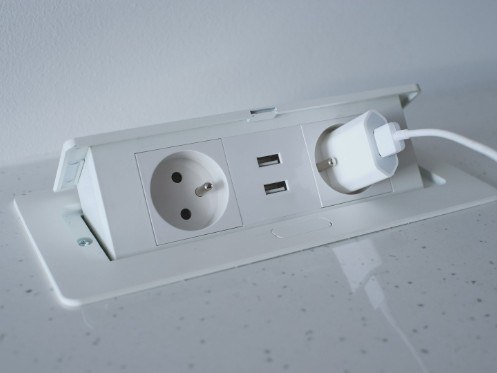No matter where you’re located in the U.S., it’s no secret that the cost of utilities is rising. According to the U.S. Energy Information Administration (EIA), the average residential electricity bill rose 13% between 2021 and 2022. Now more than ever, households are looking for ways to cut back on the budget. While your utility bill might seem like a fixed cost, there are actually many steps you can take to reduce your energy usage and trim down spending in that area.
What Causes Higher Utility Costs in Summer and Winter
Some level of energy consumption is unavoidable. Even though your electricity bill might come every month, energy consumption is typically higher in the summer and winter seasons. This has to do with increased HVAC usage during both seasons because of more extreme temperatures, as well as more lighting in the winter as the days get shorter.
In cases where your home loses power due to extreme weather or because of grid over-usage, consider having a backup generator on hand so you can continue to power essential appliances, like your refrigerator and HVAC system (which may be necessary if you’re dealing with extremely high or low temperatures). It’s also a good idea to unplug electronics and turn off lights to avoid exacerbating the problem, and utilize a prepared power outage kit with flashlights, power banks, and other essentials until the power comes back on.
Ways to Reduce Energy Usage Year-Round
Reducing energy usage is a great way to cut back on your utility expenses. Additionally, it’s an important aspect of doing our part to minimize our carbon footprint and reduce fossil fuel emissions. However, it can be difficult to know how to mitigate our energy usage outside of the energy-heavy months of winter and summer. Fortunately, there are some simple steps you can take to cut down on utility bills year-round.
Adjust Your Thermostat
One quick way you can make a difference in your annual utility costs is by only using your HVAC at home. If you have a traditional thermostat, simply turn off the HVAC system before you leave. But a smart thermostat can make the process that much simpler and more convenient for you.
Smart thermostats can be scheduled to turn on and off at specific times, so you can automate it to turn on when you’re on your way home from work and it will already be at a comfortable temperature by the time you walk in the door. Some smart thermostats even have the feature of detecting when someone is home, so if you take a day off or your routine is different, your HVAC system will automatically kick on.
Another easy tip to reduce energy usage is to adjust the preset temperature by just one degree. For example, if you typically keep your home at 70 degrees in the summertime, consider bumping it up to 71 or even 72 degrees. Often, this is not enough to make a significant different in our comfort levels, but it does reduce your energy usage over time.
Taking steps like this also reduces the strain on your HVAC system, which can reduce the need for repairs and extend the lifespan overall. So not only are you saving on the annual cost of energy, but you’re also extending the amount of time between HVAC system replacements.
Upgrade Your Appliances
Replacing appliances may seem counterintuitive, but switching to more energy-efficient household items can actually save you a significant chunk on your monthly bill. According to the U.S. Department of Energy (DOE), Energy Star appliances can save homeowners anywhere from 10% to 50% on their energy costs! So while you may be paying more upfront for the appliance, you’ll make that money back in a fair amount of time.
It’s also worth mentioning that reducing your use of appliances is not always the way to go. Modern appliances are designed to work so efficiently that doing things manually can actually use more resources than less. For example, research shows that washing dishes by hand uses 3.5 times more water than utilizing the dishwasher.
Schedule Regular Maintenance
Maintaining your home comfort systems is a crucial part of minimizing your energy costs. When they go uncared for, it reduces the efficiency and functionality of your appliances and systems overall. This is particularly important when it comes to AC unit maintenance. Even small tasks like changing out your filters regularly will drastically affect their ability to perform.
Other maintenance duties that are important to keep up with include cleaning vents, inspecting and cleaning the coils, and clearing out the area around the main unit. By performing these regularly, you’ll become more familiar with your AC unit and be more aware of when repair may be needed. Fixing an issue as soon as you notice it can prevent it from becoming a major problem.
Unplug Devices That Aren’t in Use
There are many devices in the home that draw power even when they’re not turned on. Things that homeowners typically keep plugged in around the clock, such as TVs, gaming consoles, computers, and coffee makers, can continuously use energy if they’re plugged on but not in use. By simply unplugging these devices when they aren’t needed, you can dramatically cut down on your energy usage.
It’s also important to know that “energy vampire” devices like this can draw too much power and eventually lead to the need for electrical repair. Regularly unplugging them can help prevent this problem and keep your system working more efficiently.
Ensure Your Home Is Properly Insulated
Insufficient insulation in your home can significantly decrease the efficiency of your HVAC system, allowing inside air to escape and outside air to sweep inside. The heating and cooling systems have to work much harder and longer to bring your home to temperature, upping your costs quite a bit.
Perform an Energy Audit
Completing an energy audit in your home can be helpful when looking for areas to cut down on energy usage, especially if you feel like your bill is higher than it should be overall. If energy-sucking appliances aren’t your issue, the audit may reveal that you need water heater repair or furnace repair.
Energy Savings Can Benefit More Than Your Wallet
Reducing energy consumption is an important aspect of reducing both financial costs and environmental impact. While summer and winter months may require more energy usage overall, they’re not the only seasons in which you can cut back on energy usage. Incorporating these minor chores can help you save significantly over time.




